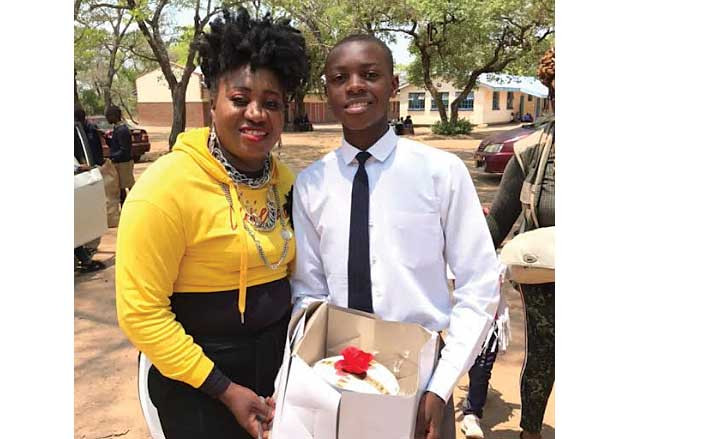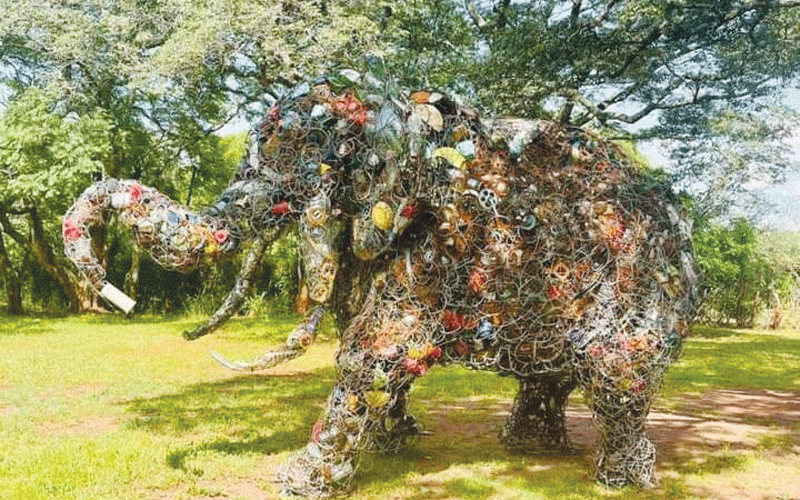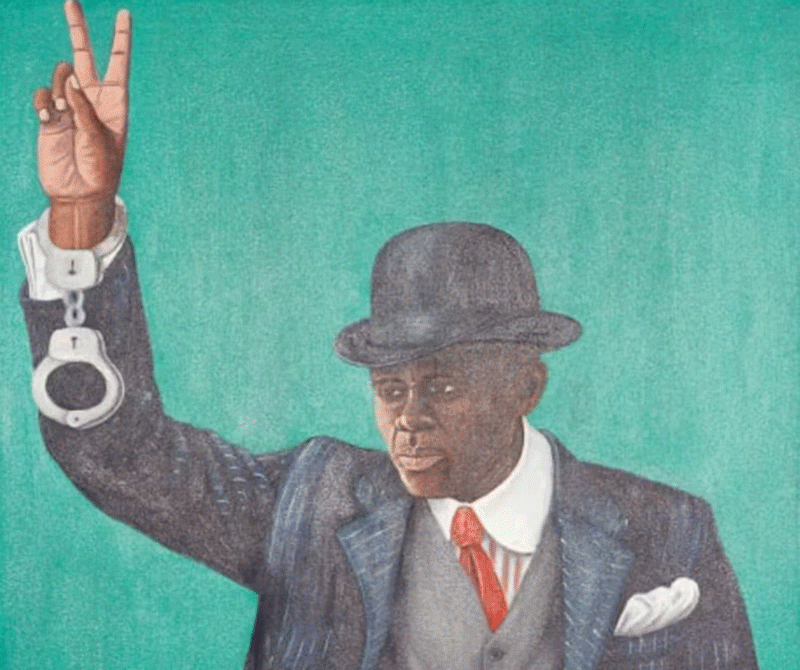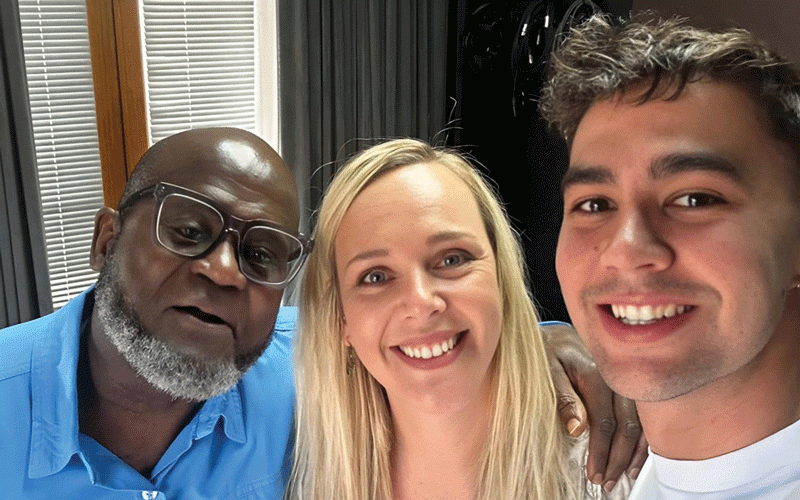
MANY could still remember her from the small screen when she was playing the outstanding lead character Muchaneta in a drama series of the same title Muchaneta that aired on the Zimbabwe Broadcasting Corporation (ZBC TV) in 2017.
Born Kessia Masona, in the drama, Muchaneta is identified as an outspoken daughter-in-law. Those who might have missed her on television, they might be familiar with her on the music stage.
Muchaneta is also outspoken in real life and not so different from the television character.
She takes pride in African traditional religion (ATR) appeasing her ancestors to guide her as she goes out to fend for her family and do other life activities.
NewsDay Weekender recently caught up with Muchaneta, a mother of two sons and a daughter at her Cranborne home in Harare where she opened up on her life, family.
Upbringing
I am the last born in a family of six, three girls and three boys. Two of my brothers and my father are late, but my mother is alive and lives in Marondera. I grew up in Marondera, a small and quiet town such that when I first came to Harare it was hectic. I was not used to a busy city, the lifestyle here is fast and people do various hustles. Marondera was characterised by a formal environment, either one was a teacher or worked in a formal set-up. Children were raised and disciplined by the community, where everyone’s mother was your mother.
Education, sports and choosing a different path
- Traditional leaders condemn poaching
- 4 nabbed over accident scene theft
- Off set with drama queen Muchaneta
- Vandira preserves culture with ‘Mbereko’ carrying practice
Keep Reading
I went to Tapfuma then Dombotombo Primary and Nagle House Girls School in the 1990s. I was in the school hockey team. After school I could not find a club to join to continue with the sport. I was really a good player. I can still manage to play hockey if there is a team of my age. I really have a passion for it. I also did high jump, which is why I jump when I am performing.
The energy runs in my blood. When I finished Advanced Level, my father asked me what I wanted to do. I did not want to become a teacher like him and my sisters, so I told him I wanted to do music. Even though I came from a family that was educated, my father did not discourage me from pursuing what I needed to do.
Family
I have two sons and a daughter: Sasha (23), Seth (16) and Nashe (4). I wanted Sasha to do any profession that is not involved with art because I have seen the struggles. It is a long way for one to make it. Sasha has a good voice, he is a visual artist and a make-up artist. He has done make-up for popular musicians like Anita Jaxson, Enzo Ishall, Shashl, Trevor Dongo, Saintfloew and the general public for events such as marriage ceremonies.
He is also a model and has worked with big companies like Econet. Sasha started make-up because he is used to pencils and colours, he did not pursue any studies. Seth is at Presbyterian High School in Mhondoro doing his Ordinary Level. He can sing and dance as well. Nashe is my duplicate, very loud and outspoken. She has a flexible body and I believe she will be fit for gymnastics. My sons respect me as their mother. I am not a violent person, but I do not like to be provoked.
Embracing ATR
I believe that our ancestors watch over us. I no longer go to church as I decided not to fuse ATR and Christianity. I think Christianity came with colonisation and we have lost our culture. ATR has been demonised and described as paganism. Before colonisation, people had much connection with their ancestors. However, the coming in of missionaries’ preaching and converting people to Christianity impacted perceptions around ATR which has been demonised, suppressed and labelled as unholy and superstitious.
I continue to embrace ATR with pride and I cannot throw away culture because of religion. When I went to church, the leaders would preach about “casting out” ancestors as demons. We all worship God, the channel is the same and everyone has a spirit guide, an ancestor. I decided not to go to church because what they preach and what I believe in and the way I live contradicts their sermons and teachings. I do not want to be embarrassed and feel bad when the teachings label ancestors as evil spirits. I snuff and appease ancestors before I embark on my activities for the day.
My paternal grandmother was a traditional healer and we did not see any problem with it. Mbuya Stella Chiweshe taught me a lot about ATR and I would even tell her when I had dreams. We shared a lot and she always told me not to throw away our culture, so even up to now I am indebted to that. We need to embrace our culture, people have lost unhu and respect for elders. When you look at social media, people trample on each other for no proper reasons which is why I am yet to adjust to using social media. There were things we were told not to ever call anyone when we were growing up that people have normalised on social media, for example calling another woman ngomwa (barren). Culture unified people and fostered respect among individuals.
Getting platforms to perform
Most of the people I started music with died of HIV and AIDS long ago. I was fortunate enough to be a tough person and that helped me not to be manipulated by men in the industry. I, however, wish to discourage other female musicians not to give away their bodies in exchange for fame and popularity. Talent is not sexually transmitted, if you are good, you are good. You will be popular when the time is due. I understand, however, that not everyone can be able to endure certain circumstances and they end up being manipulated. Around 2009, I worked with Book Café and Pamberi Trust which supported women to remain in the arts and they helped us with a platform to perform. I believe if such projects were still in existence, it would have helped even up-and-coming musicians and dancers to be in a safe space.
Advocacy traits
I have worked with non-governmental organisations (NGOs) such as Katswe Sistahood, Musasa Project, Institute of Young Women Development and The Girls Legacy among others doing community mobilisation, advocacy andgender activism. I am passionate about women’s issues. I have participated in the Mini Skirt march advocating against the victimisation of women due to their choice of clothing. I also took part in One Billion Rising, a movement to end violence against women and girls.
After working with NGOs and being active on issues affecting women, I pursued a degree in community development studies with Women’s University in Africa and I have an executive certificate in project management with the University of Zimbabwe. Eventually I want to start my own organisation helping people in the arts.
I upgraded from Chitungwiza where I used to stay to here (Cranborne). What I have never done was to remove myself from people because I became popular with Muchaneta. This helps me to have backup when I experience hard times. I do not live a fake life, what you see is what you get. I have been pressured by other people that it was time I get my own car and stop boarding combis and taxis. It does not help me with anything to prioritiseunnecessary things when my family is not fed, bills not paid and school fees not paid.










